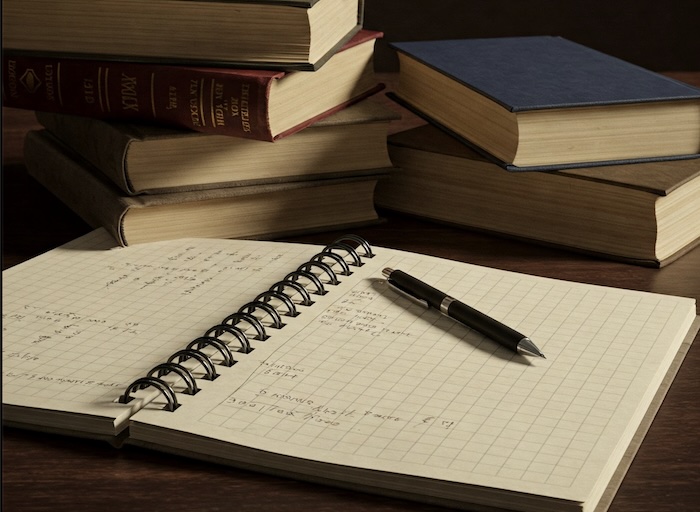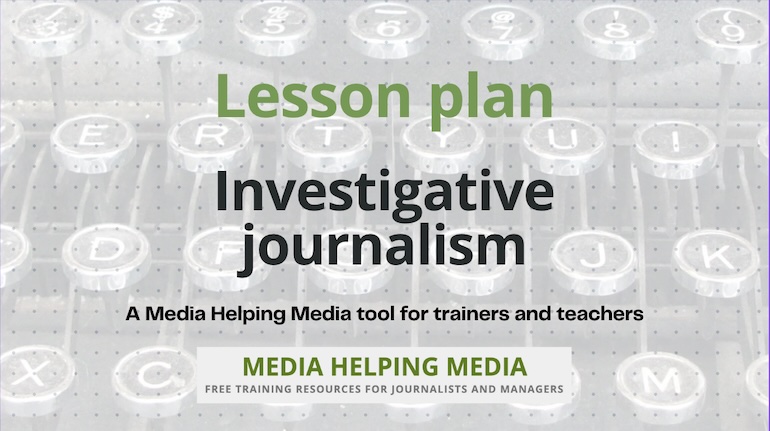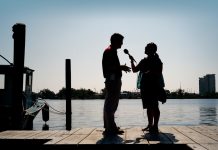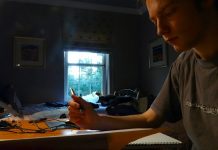
Producing a piece of investigative journalism to international standards can be a daunting prospect. This guide is to help journalists avoid some of the pitfalls and problems often encountered when writing a detailed and complex investigation.
Proper research will give you focus and help you to decide who best to interview. If you haven’t done your research, it will be obvious when you start interviewing. You will lose credibility and those you are interviewing will be less likely to open up.
Make sure you are up to speed with new developments; know the background; know the main players and people who will talk; know what has been reported already. You should be looking for a new angle, new information – something different that will take the story forward.
Sources
Begin with background reading.
Check out official documents, such as laws, regulations, court documents, the records of an individual’s, organisation’s or institution’s dealings, such as correspondence, meeting minutes or transcripts, internal reports, contracts or financial records, and original materials on which other research or reports are based, such as the first publication of the results of scientific investigations, surveys, fieldwork or interviews.
Consult government or parliament documents and records – laws and legal acts are also often accessible on government websites. Check websites of NGOs or international organisations before calling them for an interview. Their reports and documents posted online will help inform your questions.
Be careful with opinion polls. Often, they are commissioned by government or political parties. Check carefully the background of the organisation that produced the poll and the methodology used.
Always spread your net wide. It is important to represent the interests of different groups, even if minor and/or unpleasant. Doing so means that your article will be balanced.
But beware. It is easy to get lost in piles of research material and to lose your focus. Know when to stop researching and start interviewing. As you accumulate material, think constantly of your angle. If you’re following up a story that’s already had an outing, what do you have to add?
Setting up interviews and interviewing
Interviews in person are always preferable. If that’s not possible, then speaking by phone is also fine but never – unless there is no other option – interview by email. If you do, make clear in the copy that any quotes you use were obtained by email.
If you’re recording also take notes at the same time. It forces you to listen and acts as a back-up if the recorder fails. It can also save time later, meaning you may not need to transcribe the entire interview.
Save all notes and tape recordings until well after the story is published. If anyone challenges your work, your notebooks will back you up.
Experts
Start off with the so-called experts. Expert sources will include journalists, activists, independent researchers, scientists, government investigators, academics and authors.
Experts may have an agenda so check and double-check everything you are told. Examine their links with political parties, governments, business interests and check their previous statements/reports to judge how reliable their analysis is.
Former officials who have left a company can be a great source of information. They have the inside track and no longer fear losing their job if they speak out. They may also be able to connect you with current insiders. But again question their motives. Why did they leave?
Don’t focus entirely on experts. Each story needs a human face, someone personally affected by the problem, a victim. NGOs or local media outlets might be able to help you find someone, but in the case of NGOs also be careful of their motives and agenda.
Schedule interviews with potentially hostile or evasive subjects for near the end of your research as you will be better prepared to question and challenge their remarks. This is particularly true when interviewing governmental representatives. Always do them last as they will be among the trickiest interviews.
Interviewing the vulnerable
Be extra sensitive when interviewing trauma victims. Set up the interview through someone they trust. Take extra time. Find a secure place to interview them.
If the person refuses to speak to you, don’t insist. Respectfully explain why you feel that their story needs to be told (for example, that it may help other survivors). If they still refuse, leave your contact details in case they change their mind later.
Proceed with special caution when dealing with children. Your overriding concern must be to protect the child from harm.
Decide first if the interview is strictly necessary in telling your story. If possible obtain permission from a parent, guardian, school or local authority before beginning an interview.
Be particularly careful when speaking to minors involved in court cases. There are usually strict prohibitions on identifying them and you could find yourself in contempt of court.
Adjust your style for children. Direct questions often don’t work and a more effective approach is to allow the interviewee to speak in a less-structured way, ideally in a child-friendly environment. Children often tell adults what they think they want to hear, so be patient.
Children who have suffered trauma will need extra time to tell their story. Get down to their eye level. Proceed slowly and carefully and be alert for signs of anxiety.
Asking the right questions
It may emerge after several interviews that your original premise doesn’t stand up. If this is the case, adjust your focus or change the idea completely. Don’t struggle to make the original angle work. If this happens, notify your editor.
Prepare a list of basic questions about the main points you want to cover. It may seem obvious, but many journalists don’t do it. However, always be ready to improvise and adapt – don’t stick rigidly to your list. If the interview turns in an unexpected direction, be ready to drop your original line of questioning.
Always be ready to improvise and adapt – don’t stick rigidly to your list of questions.
Many interviewees will want to see your questions in advance. Decide on a case-by-case basis whether you will comply. Technical questions that require some research are examples of when this approach could be useful.
However, giving too much away might kill spontaneity. It could also inhibit you if you feel you must stick to an agreed list of questions.
While interviewing, remember to listen. Thinking about what you will ask next while the subject is still answering the previous question is a common mistake and means you could miss important information.
Avoid leading questions – questions which subtly prompt the interviewee to respond in a particular way. For example, ask “what did you see”, not, “you saw the soldier shoot the man, didn’t you?”
Use open-ended rather than closed-ended questions. An example of a closed-ended question: “Who will you vote for this election?” An example of an open-ended question: “What do you think about the two candidates in this election?”
Long and rambling questions will often elicit long and rambling answers, or allow the interviewee to duck the question entirely, so be short and precise.
At the end of the interview a good question to ask can be, “Who else should I speak to about this topic?” and “What have I not asked you that I should have asked you?”
An informal chat at the end, tape recorder turned off and pencil put down, often produces useful background information. Quickly check your notes before walking away or hanging up. If you don’t understand, ask again. If you don’t get it, how will the editor or the reader?
On and off the record
Make sure the interviewee has given informed consent and understands the meaning of the terms “on the record” and “off the record”. Check several times throughout the interview what information is on and what is off the record – especially if the interviewee starts giving details that could put them, or others, at risk.
Try to stay “on the record” where possible.
Use anonymous sources sparingly. There may be times when it is the only way to get someone to speak, but be aware that too many unnamed sources will weaken your story. If you do use an anonymous source, be as specific as possible in identifying their relationship to the issue at hand.
Avoid quoting just “diplomats”: it should be a senior UN official, an EU diplomat, an international expert for justice in Kosovo and it should be clearly stated where they are based.
Never make up a quote. It’s a lie and it ends careers and taints the profession. You can always find a good source. Truth is always better than whatever you could make up. You will always be found out.
Never pay for information or interviews
Familiarise yourself with local laws and customs relating to your topic.
It is your responsibility to inform yourself about the political and social terrain in which you will be working. For example, in some countries, covert use of a tape recorder is illegal.
Stay within the law when reporting your story. It may be tempting to break the rules to illustrate your point, or to get the story, but this will leave you vulnerable and could even undermine your credibility in the long run.
Telephone taps, breaking and entering, and hacking should not be used.
Journalists are observers and reporters of events, not active participants: spectators at the match not supporters of one team or the other.
Going undercover
There may be times when you wish to conceal your identity as a journalist in order to gain a different perspective on the story.
Undercover journalism can be a force for social change, uncovering a problem that would never have been brought to light by any other means. But by sacrificing transparency and honesty you could leave yourself open to criticism about your methods or even your conclusions.
When deciding whether to go undercover, to obtain information through deceptive means, you should ask yourself various questions.
Is the information you will obtain strongly linked to a broader social purpose and is it of vital public interest? Does the public value of this information outweigh the deception and potential violations of privacy? Could you obtain this information through straightforward means, and have you exhausted all other ways of getting this information?
Always inform your editor in advance who you will be meeting, when, where and when you will be back. Agree a time by when you will check in, and then make sure you do.
Leave a list of contacts with your editor detailing who you would like to be contacted in the event of an emergency.
If you plan to be gone for more than a day, work out a plan to call a designated person (editor, spouse, partner, parent) every 24 hours. Your failure to call by an appointed time should trigger phone calls to emergency contacts.
Several people – including colleagues in the field and back in the office – should also be provided with the list of emergency contacts, as well as instructions for how to get in touch with them.
Ideally, set up interviews via people you know and trust, but social networking sites and online forums can be useful in developing new contacts. Always meet contacts obtained this way in a public place, informing your editor of who you will be meeting and when you will be back.
Staying safe during your investigation
Always carry press identification. In some countries a signed and stamped letter from your editor outlining your mission could be useful. Carry a mobile phone with emergency numbers pre-set for speed dialling.
If travelling in the countryside, or far from medical help, carry a first aid kit (know how to use it) and a torch.
Sensitive files, documents, discs, video and audio recordings should be stored in a secure place.
Always be cautious when using mobile telephones and email to communicate; they may not be secure. Limit phone interviews to non-sensitive information: phones can be tapped. Similarly, emails and letters may be intercepted and read. Sensitive conversations should be held face to face.
Journalists should be aware of local sensibilities. Dress in a manner which is appropriate to the local culture.
Ideally, journalists who do not know the local language should travel with a qualified interpreter who can help them communicate and understand local customs. Journalists should also learn and be able to pronounce the words for press or journalist in local languages.
Organising your material
You must always work from a detailed article outline. An outline is a roadmap; a logical and schematic summary are essential when writing a long piece.
Begin by transcribing recordings and typing out hand-written notes so that all material for your story is in front of you in a clear, easy-to-read format.
Then highlight the most relevant sections in your interview notes and all other documents to which you will refer, for example reports, web pages or emails. The highlighted information should then be slotted into an article outline. Time spent preparing a good outline will cut many hours from the writing process.
The more detailed and carefully thought-out your outline is, the more organised the piece will be.
The first sentence in the outline should be your intro. This is the point from which the entire outline, and article, will flow. Each paragraph in the outline must then support the intro, with each paragraph flowing logically from one to another.
The basic structure of the outline is simple and mirrors the structure of the story itself – beginning (lead)] – middle (body) – end (conclusion). This may sound oversimplified, but it is depressing how often journalists forget these basic components of a story.
As with the outline, time spent working out the intro long before you start writing the article will save hours later and help prevent an unfocused final product.
Writing your story
Keep your structure in mind at all times – beginning, middle, end. The forumula is simple: “Tell them what you are going to tell them; tell them the story; tell them you have told them.”
The intro must grab the reader’s attention, explain what has happened and why it is important. If you have no lead then you will have no focus and the story will not work..
A good intro should capture the mood, create an image, appeal to the imagination, instantly transport the reader to the location.
The body of the story draws readers into the piece. Each paragraph follows on logically from the previous one, building the argument, referring back to the main point.
Each new paragraph should introduce a new point or topic but keep these transitions smooth. Use linking words such as however, soon after and meanwhile.
Be selective with the information you include. You don’t have to use everything in your notebook. Avoid duplication, repetition, and non-essential information.
Avoid long, rambling quotes. Used sparingly, quotes can have a more dramatic effect. Select the poignant sentence, the meaningful or relevant phrase.
Emotive words
Watch your words and avoid sensationalism and sensational language. Avoid heavily slanted adjectives such as arrogant or warlord. Always be precise about what you know and be temperate when describing what you see. Avoid demonising adjectives like vicious, cruel, brutal, barbaric. These always describe one party’s view of what another party has done. To use them puts the journalist on that side.
Instead, report what you know about the wrongdoing and give as much information as you can about the reliability of other people’s reports or descriptions of it. Avoid presenting an opinion or claim as an established fact.
Conclusion
The conclusion is the end, not a place for any new information or surprises. Remind the reader why the story is important. Give them a feeling of having read a complete article.

Questions
- What is the primary purpose of investigative journalism?
- Why is proper research crucial before conducting interviews in investigative journalism
- List three types of official documents that journalists might consult during their research.
- Explain the importance of representing different groups’ interests in an investigative article.
- What are the recommended methods for conducting interviews, and why is email the least preferred?
- How should journalists handle interviews with trauma victims or vulnerable individuals
- Describe the role of experts in investigative journalism and the precautions journalists should take when using them as sources.
- What are the potential risks and ethical considerations of going undercover as a journalist?
- How can journalists ensure the safety and security of their sensitive materials and communications?
- Outline the basic structure of an article.
Answers
- The primary purpose is to help journalists avoid pitfalls and problems when writing detailed and complex investigations to international standards.
- Proper research is crucial because it provides focus, helps decide who to interview, and maintains credibility during interviews.
- Journalists should consult laws, regulations, court documents, records of dealings, meeting minutes, transcripts, internal reports, contracts, financial records, and original research materials.
- Representing different groups’ interests ensures the article is complete and fair ant that it includes diverse perspectives, even if some are minor or unpleasant.
- In-person interviews are preferred, followed by phone interviews. Email is least preferred because it lacks spontaneity and may not capture the full context.
- Journalists should be sensitive, set up interviews through trusted individuals, take extra time, and ensure a secure environment. They should respect refusals and prioritise the interviewee’s well-being.
- Experts provide valuable insights, but journalists should verify their information, check for biases, and understand their motives to ensure reliability.
- Going undercover can reveal important issues but involves ethical concerns about deception and privacy violations. Journalists must weigh the public interest against these risks.
- Journalists should store sensitive materials securely, be cautious with mobile and email communications, and conduct sensitive conversations face-to-face.
- The basic structure of an article includes an introduction that grabs attention, a body that builds the argument logically, and a conclusion that reinforces the story’s importance without introducing new information.
Lesson plan for trainers
If you are a trainer of journalists we have a lesson plan about ‘Investigative journalism‘ which you are welcome to download and adapt for your own purposes.









